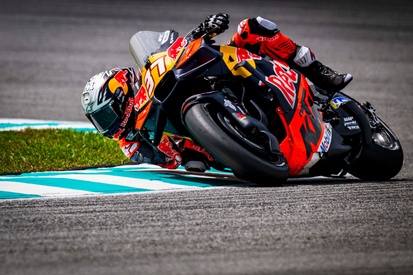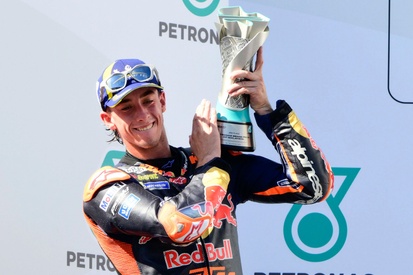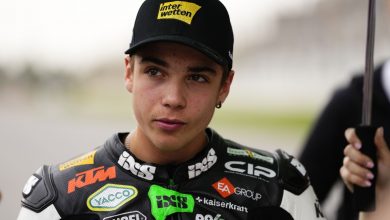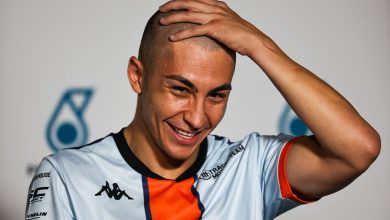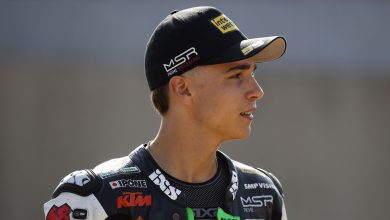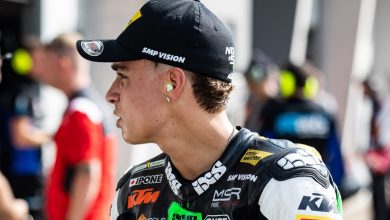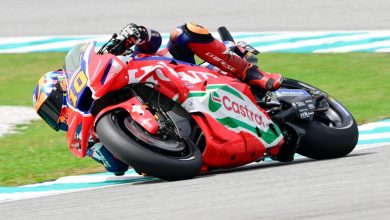Pedro Acosta interview: ‘Money is what matters to me the least – only winning satisfies me’
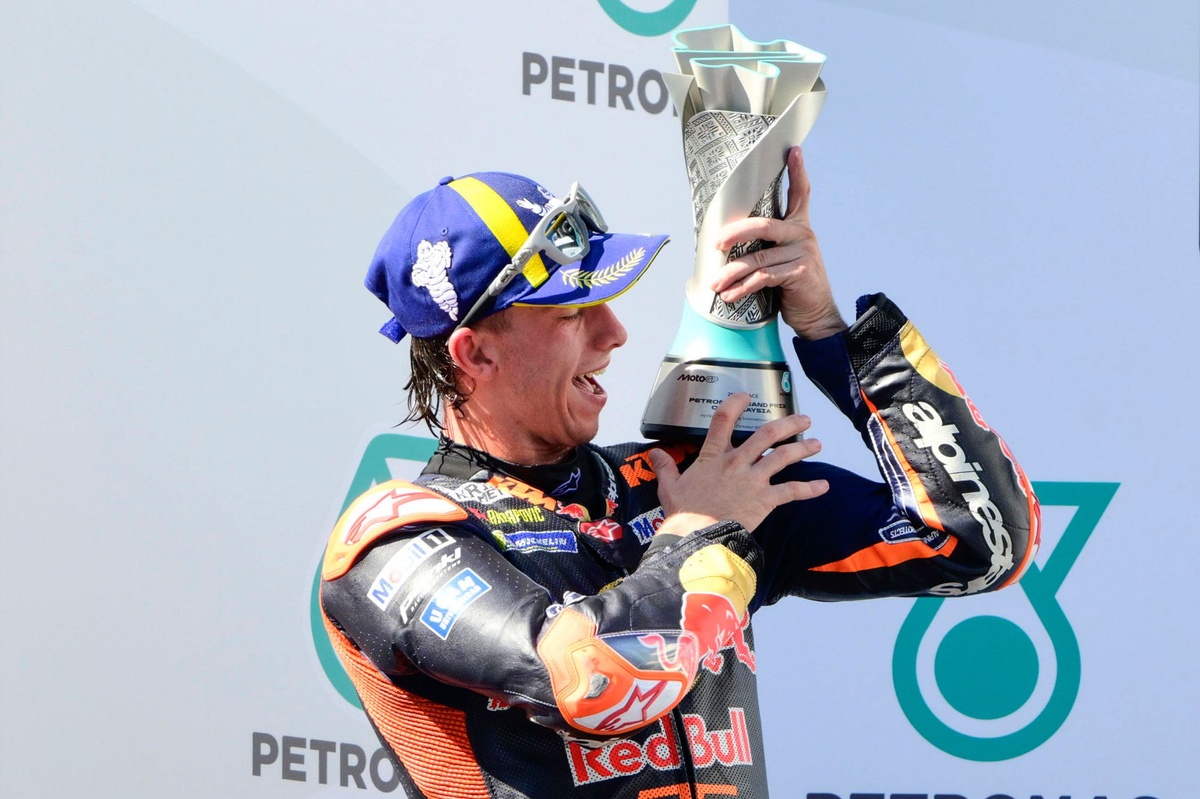
At just 21 years old, Pedro Acosta already knows what it means to become the center of attention overnight; to be labeled as the next extraterrestrial to land in MotoGP from the same planet that once produced Marc Marquez and Valentino Rossi; and to deal with the frustration of not yet having opened his victory tally with only two races left in his second season in the premier class.
In this conversation with Motorsport, the Spaniard sets aside his most competitive side to reveal his more human one — a facet he rarely shows because he almost never lets his guard down.
Motorsport: When are you more at ease — when you’re on the bike, or when you step off it and take care of the other obligations that come with being a rider?
Pedro Acosta: I’m more relaxed when I’m on the bike. That’s the easy part. You put your helmet on, do your thing, you’re the boss, and you decide what to do and what not to do. Then, once the session or race ends, you have to deal with everything else — sponsors, brands. That’s the part that gets a bit harder.
Can you be yourself here, or do you have to wear a mask?
I think the key is to be yourself. Because if you’re going to be around here for ten, fifteen, or twenty years, having to fake it for that long must be exhausting – putting on a face that isn’t yours. It’s true that, over time, I’ve learned that you need to be professional about the parts you don’t like so much, but it’s important for people to know who you really are. If I were selling an image that isn’t mine, I couldn’t go to bed peacefully.
But doesn’t that create more problems for you?
I don’t really care. You are who you are, and you can’t help it. Some people will like you more, others less; you’ll have more followers, or fewer. What matters is being at peace with yourself.
What role does money play in your life? You don’t seem too drawn to luxury or sports cars — that’s quite unusual for a successful 21-year-old.
Money is what matters to me the least right now. If I were 30 or about to start a family, there’d be more things around me to worry about. But I still live at home with my mother, and I drive around in my van. Thanks to the fact that I have a very down-to-earth circle, I’ve stayed the same as always. I go out with my lifelong friends, I do exactly what I did before I made a living as a rider. That’s what keeps your feet on the ground. If you change, if you start hanging out with people from a different background or lifestyle, it’s normal that you end up changing too. But I’m really happy to still be surrounded by the same people — going out for dinner with my mates in downtown Murcia.
Fame came to you very quickly. How did you handle it?
It’s true that, at first, a lot of people in Murcia didn’t know me. They’d see me in a restaurant and I’d catch their attention. But after four years of seeing me at the same place, sitting at the same table, everything just became normal.

Pedro Acosta, Red Bull KTM Factory Racing
Photo by: Asif Zubairi / Motorsport Network
What’s the biggest indulgence you’ve allowed yourself as a MotoGP rider?
My van. I wanted to build one so I could travel with it, I did it, and I’m super happy with it.
Most young people your age who are successful like to show off what they have.
No matter how well things go for me, I don’t like to draw attention to myself.
Do you think things are going well for you in the championship?
They could be going better, to be honest. This has been the first year that’s truly been difficult. Until now, I thought my first season in Moto2 had been a disaster, but now I’d sign up for that one again — I won three races that year. It’s been hard to accept that I had to change the goals I’d set for myself. Even harder to do it after the very first race. I just couldn’t wrap my head around it.
You’re 21, it’s your second year in MotoGP, and you’re already a Moto3 and Moto2 world champion. Why the rush?
Because that’s what I want for myself. I want to win. Money doesn’t satisfy me, nothing does except coming here and winning — or at least competing. The problem is that this year we haven’t really competed. We’ve shown up, done laps, had some good races and some not-so-good ones. But I don’t feel like we’ve truly fought.
You haven’t won yet in MotoGP. Does that make you feel frustrated, angry, or resigned?
I think it makes me feel resigned. Right now, I’m at my best as a rider; I’m more convinced than ever that I have the potential to win races — more than one. But when you finally accept that you have to change the plans you had in your head, you also realise you can’t keep blaming yourself all the time. I can only influence what’s in my own hands, and once I understood that, my mindset changed. Now I focus on what’s within my reach, not on what’s missing or out of my control. That will come. I like to think life is preparing me for something better.
You’ve had two podiums in the last three races. On Sunday in Sepang, you finished less than three seconds behind Alex Marquez. Did you think that might be the day?
Alex was really aggressive from the start and pushed hard to get past me and Pecco. I lacked a bit in those opening laps, but afterward I was quick and managed to preserve the tires, though I didn’t use the rear ride-height device. I feel ready to win.

Pedro Acosta, Red Bull KTM Factory Racing
Photo by: Steve Wobser / Getty Images
You’ve said before that the good vibes among MotoGP riders take away some of the championship’s intensity. Do you still think that?
Yeah, I thought the races were really cool back when Rossi and Lorenzo fought, or Lorenzo and Pedrosa, or Rossi and Marc. Those battles got fans off the couch. Now it’s different. The way I see it, the other riders want the same thing I do — and if they have to go over me to get it, they will. I give everything to achieve what I want, which is to win the MotoGP title. I think about it 24 hours a day. I didn’t come here to make friends — the real ones I already have outside.
Everyone knows that at the start of the year you tried to find a way out of KTM for 2026, but it didn’t happen. You seem less anxious now than back then. How did you handle that?
Maybe I was anxious, but not just because I had doubts about the project — I even started to doubt myself. Before MotoGP, I always had the best equipment available, so I only had to focus on riding. If someone beat me, it was because I’d made a mistake; if I won, it was because I’d done things right. This year, the problem was that I trusted the bike so much that I put all the pressure on myself. And when things didn’t go as I expected, I blamed myself for everything.
And how did you break out of that cycle?
You have to surround yourself with good people — people who make you open your eyes. Albert [Valera], my agent, and everyone around me helped me understand that the crashes, for example, were the result of trying to go beyond what the bike could give. Races like Australia, where the tires dropped off so quickly, you can’t beat yourself up over that — it leads nowhere. After that, you could spend the whole day feeling bitter because things didn’t go your way. In those moments, it’s important to put things in perspective, focus on what’s in your control, and stop blaming yourself for everything. There are goals you simply won’t reach, no matter how hard you try, if not everything is in place. In those times, it’s important to relax and remember your potential — that’s what’s easiest to forget.
The market keeps opening earlier, and over the next few months, teams will start planning for 2027. Do you already know what you want for your future?
I’m not too stressed about the 2027 market. If I keep putting in strong performances like I have since the summer, there’ll be doors open when the time comes. And if KTM improves, that’s another one. People who understand bikes can clearly see what I’m missing to win.
We want your opinion!
What would you like to see on Motorsport.com?
– The Motorsport.com Team
